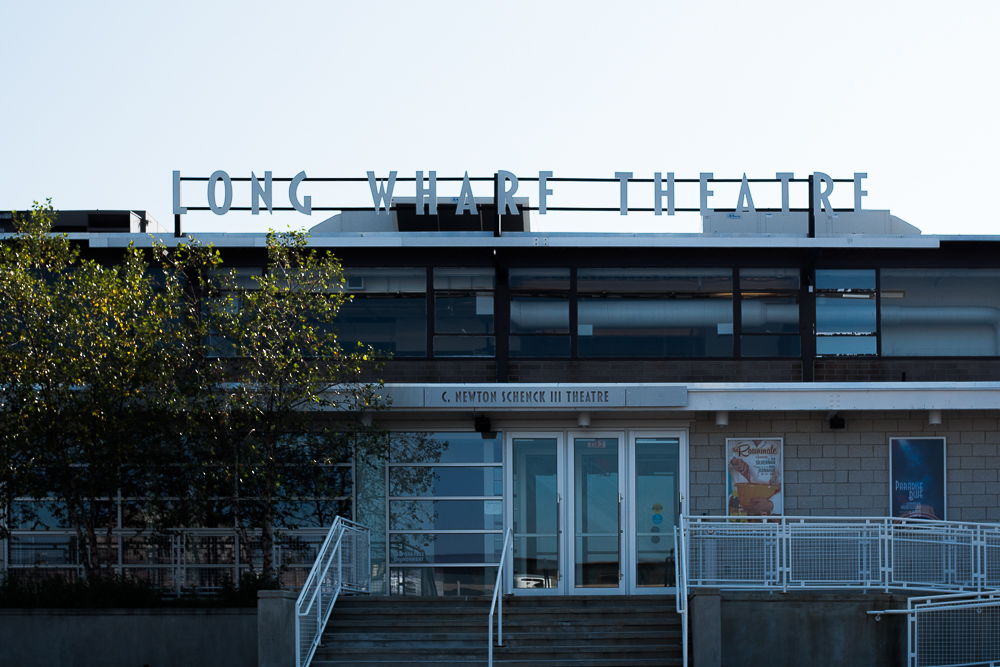
Reuben Ng
Theatergoers may not expect to see captions while they watch shows, but Long Wharf Theatre hopes to change the way that hearing-challenged people experience performances by introducing open-captioning.
The theater will provide open-captioned performances for six shows during the 2018–19 season. Dialogue and sound effects will be displayed on a captioning unit in time with the performance. They will be offered as a partnership with the Theatre Development Fund, a national organization dedicated to bringing live theater to more audiences. Long Wharf received a commitment of support, including installation of the caption system, as part of TDF’s National Open Caption Training Program, which works to make theater more accessible for hearing-challenged patrons across the country.
“We have good interest from the community and are relying on those engaged to bring and tell their friends and peers who would benefit from this service,” said Elizabeth Monz, director of development at Long Wharf. “As we are a nonprofit, cost is always a challenge, so support from individuals and foundations, noting TDF in particular, has an immediate impact in expanding our accessibility to all who wish to engage in live theater.”
In order to receive funding, Long Wharf competed against professional theaters nationwide for the partnership. Most of the funding comes from the National Endowment for the Arts, which allows for the TDF to send a technician for the captioning unit and help with community outreach.
The application process requires letters of support from community members who say they would benefit from the program. TDF Director of Accessibility Programs Lisa Carling said that in one letter, a woman described her experience being unable to attend Long Wharf performances for 30 years because of profound hearing loss.
If the program is successful, TDF will fund a second season of open captions. After these two seasons, they will support Long Wharf in a search for more local funding to continue offering open-caption technology during shows. Monz estimated that there are over 40,000 hearing challenged patrons in Connecticut whom Long Wharf will now be able to reach.
TDF has also partnered with theaters across the country and is working with the Goodspeed Opera House and the Westport Country Playhouse in Connecticut to develop their caption programs.
Mark Gallucci, the executive director of the Center for Disability Rights in Connecticut, told the News that the 2010 Standards for ADA Compliance put out by the Department of Justice responded to 2008 Amendments to the Americans with Disabilities Act by increasing requirements for communication access in theaters. This reflects the new availability of technology to “ease compliance efforts.” He said that the Yale Repertory Theatre and the Yale School of Drama have been providing open-captioned performances for years.
“Technology has progressed greatly since 1990 when the ADA was passed, and the new standards reflect the availability of the technology to ease compliance efforts,” he said. “Indeed, theaters today have closed-captioned devices, assistive listening systems and other things which make access for people with hearing loss a whole lot better.”
Long Wharf had previously been using infrared listening systems with free headsets, as well as a hearing loop for telecoil hearing aids, but there was still a demand for open captioning. According to Carling, assistive listening devices can amplify sound but still make it difficult to understand individual words.
She said that open captions can also benefit people for whom English is a second language, in addition to families with children learning to read.
Long Wharf’s first open-captioned performance will be “The Roommate,” on Oct. 18 at 8 p.m.
Carolyn Sacco | carolyn.sacco@yale.edu







